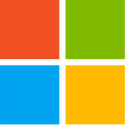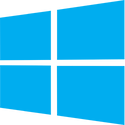
Microsoft Details New Windows 11 Update System To Manage App Updates in Addition to Windows Systems and Drivers
Since the introduction of Windows 10, Microsoft has seemingly had ambitions to consolidate as much control over what gets installed on your PC as possible. A perfect example of this is the push towards using the Microsoft Store to install programs instead of relying on .exe files. The company's latest move in this direction sees Windows start handling more than just system updates. Notably, it seems as though Microsoft is planning to use this new system alongside the Store instead of as a replacement for it. These plans come in spite of Windows updates continuing to cause BSOD issues as recently as April.
According to a Microsoft blog on the topic, Windows will soon start handling everything from driver and firmware updates to app updates. Microsoft explains that the current update and management platforms lead to a fragmented ecosystem: "Updates across the Windows ecosystem can feel like a fragmented experience for IT admins managing applications that have their own update orchestrators (e.g., line of business) and commercial management tools that handle their own download, install, restart, and notifications today," adding that the way things are currently handled causes a number of issues, including CPU and network usage spikes, increased support costs, and a poor user experience due to "confusing or conflicting notifications." Microsoft aims to address this by introducing what it calls the Windows Update orchestration platform.
According to a Microsoft blog on the topic, Windows will soon start handling everything from driver and firmware updates to app updates. Microsoft explains that the current update and management platforms lead to a fragmented ecosystem: "Updates across the Windows ecosystem can feel like a fragmented experience for IT admins managing applications that have their own update orchestrators (e.g., line of business) and commercial management tools that handle their own download, install, restart, and notifications today," adding that the way things are currently handled causes a number of issues, including CPU and network usage spikes, increased support costs, and a poor user experience due to "confusing or conflicting notifications." Microsoft aims to address this by introducing what it calls the Windows Update orchestration platform.































































